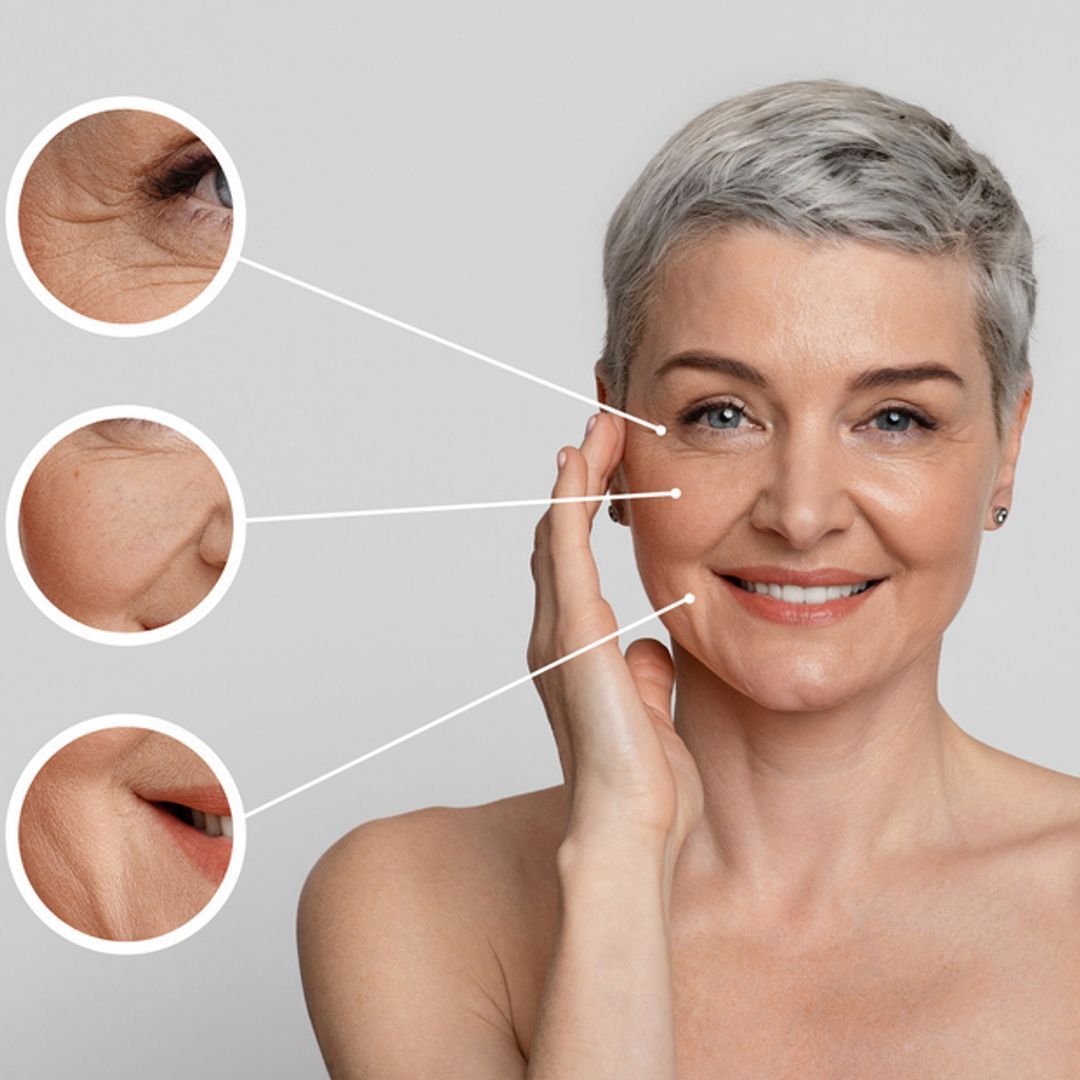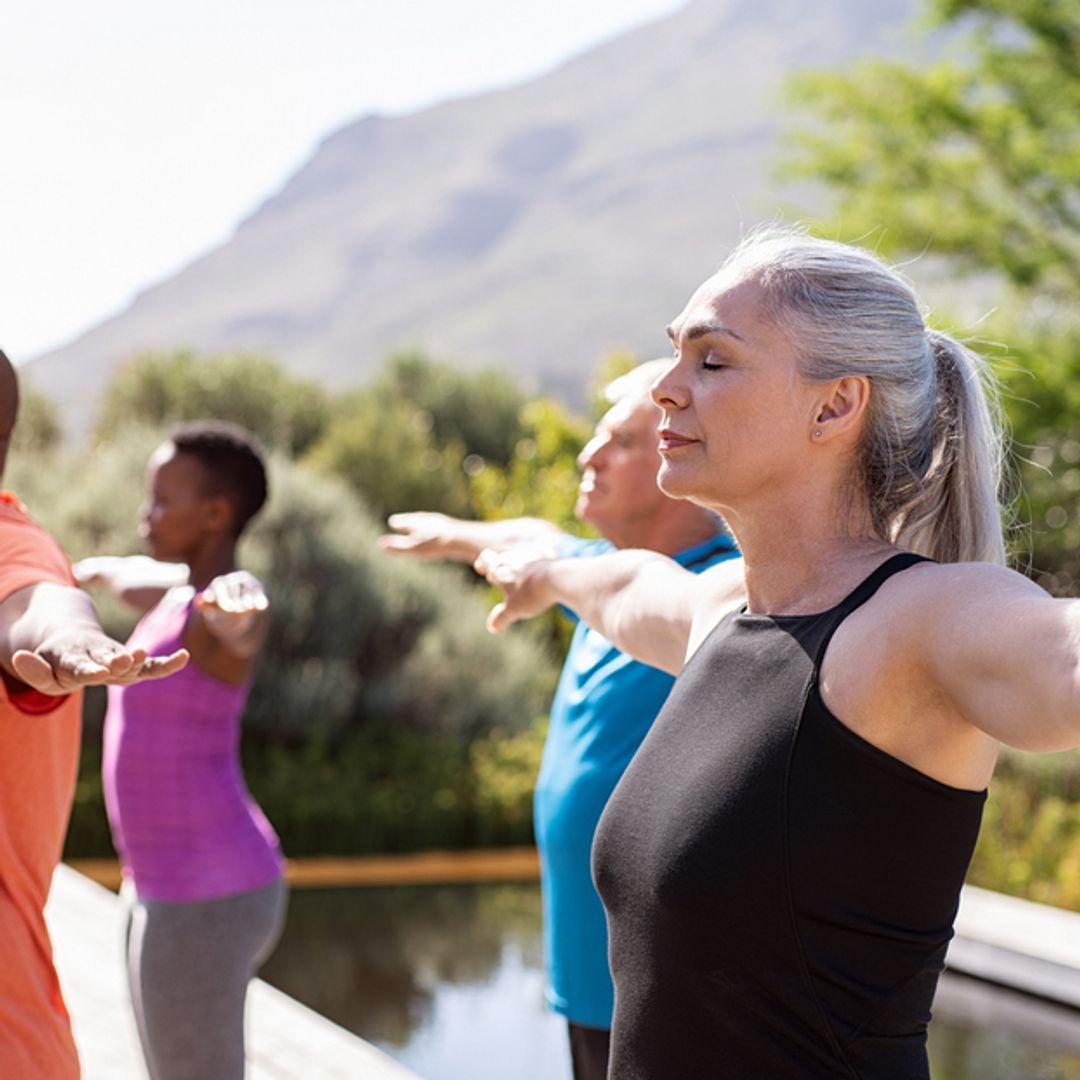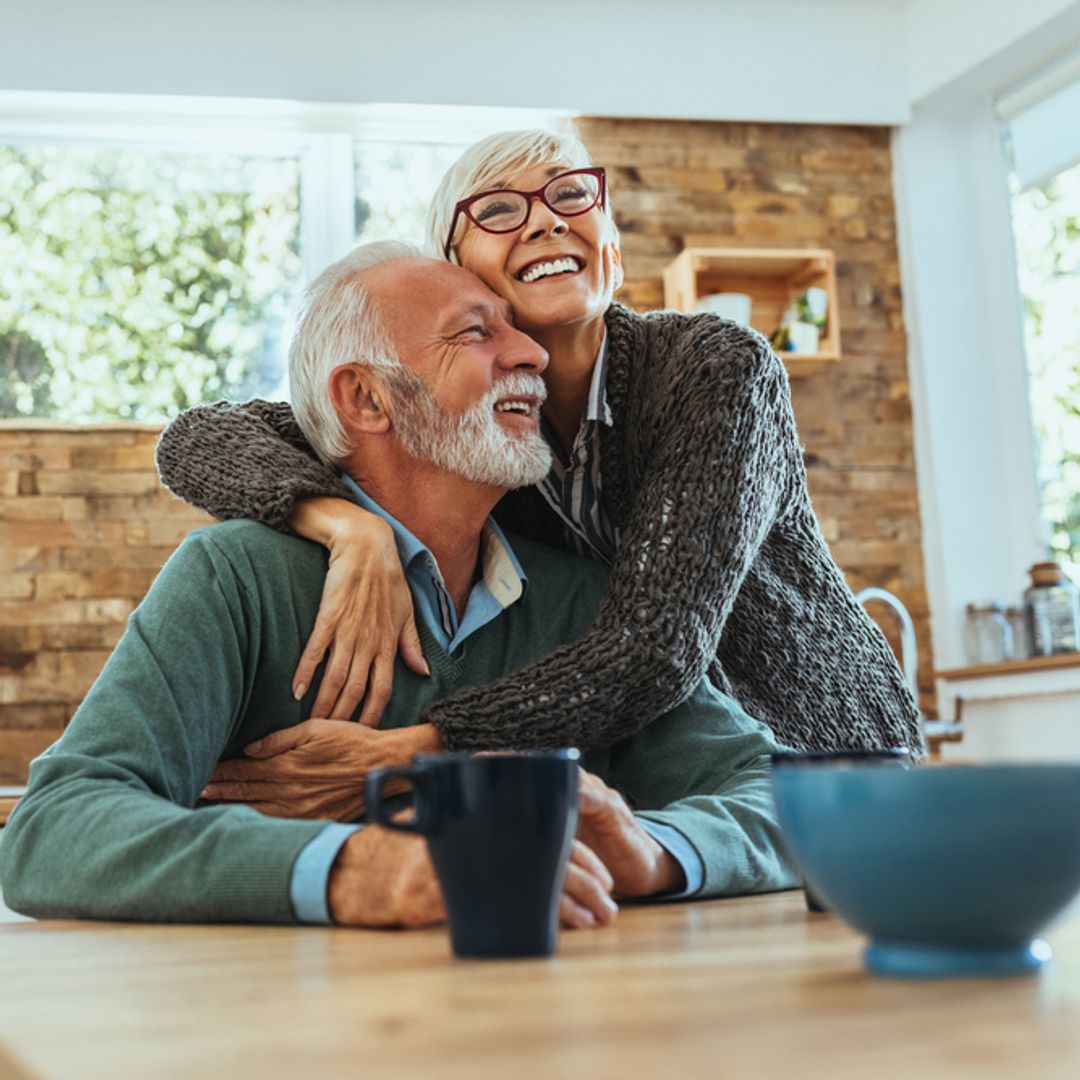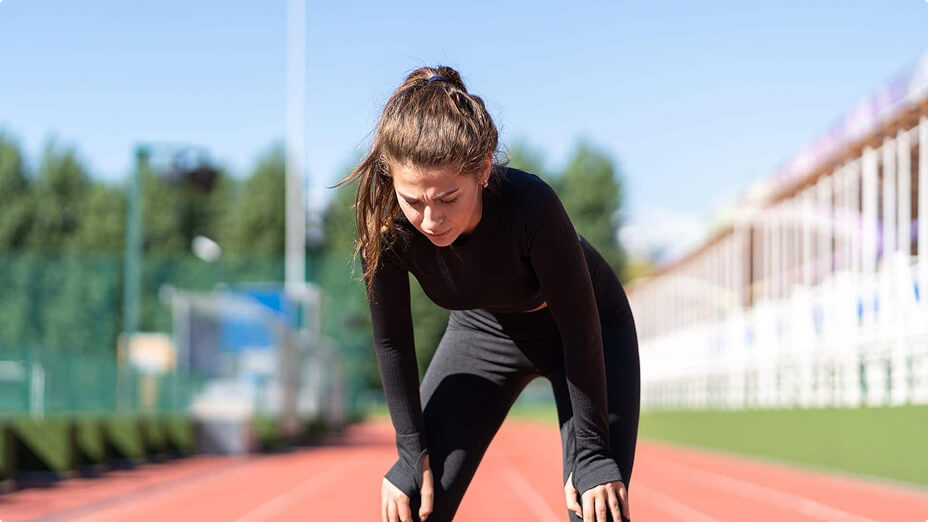How to Look Younger: Complete Guide
Ageing is inevitable but this does not mean the end of an active and happy lifestyle. Discover the natural guide to looking and feeling younger in your mature years.
As we age, we begin to show signs of getting old through our faces, bodies and minds. All three parts need to be cared for and maintained to stay looking and feeling younger.
Research has shown that using sunscreen, practising facial exercises, carrying out light exfoliation, and maintaining healthy skin microbes can take years off your appearance to create a younger-looking face. These practices can help create the glowing skin people seek.
Our bodies need looking after to support a more physical and mobile lifestyle as we get older. Recreational exercise and healthy eating will help mature people look and feel better in their day to day lives. Moisturising your body and practising good posture can also make you look younger than your years.
Accepting the fact that we will all grow older and embracing the beauty which comes with age can help keep your mind healthy and happy. Continue to enjoy life and boost your oxytocin level through love and connection. Getting sufficient sleep and keeping your mind active also have the ability to help reduce the negative impacts of ageing.
Ageing is a natural process which we must all go through. There is a whole industry built around ways to help us feel more confident as our bodies age, including various anti-aging treatments, some of which are more invasive than others. However, the experience of maturing can be a positive one, and there are ways we can stay looking and feeling younger than our age.
When it comes to the signs of ageing, there are a few apparent ways we begin to show them – through our face, body and mind. Maintaining all these parts is crucial when wanting to look younger and getting the results that make you feel most positive about yourself.
This guide aims to provide you with the knowledge needed for a natural approach to anti-ageing. When adopting these practices into your wellness routine, there is the possibility to look fresher and feel more youthful.
Creating a Younger Looking Face

When it comes to our skincare goals, "glowing" often comes to mind. Many of us are in pursuit of a radiant, healthy complexion and want to have it at whatever age we happen to be. Some may choose cosmetic treatments, while others seek a more natural approach.
Here are some of the proven and natural ways to maintain glowing, healthy skin:
Use sunscreen
We should all be using sunscreen daily and all year around. The sun emits ultraviolet (UV) radiation, which is incredibly damaging to the skin. UV rays are the primary cause of texture and colour changes leading to premature skin ageing. Protect your skin using an SPF of 30 or higher and apply it as the final step in your morning skincare routine. Mineral-based sunscreens can be particularly effective as they contain active ingredients like zinc oxide and titanium oxide. Sunscreens work as a barrier, so be sure to apply any serums or creams beforehand as any skincare actives you use after will not penetrate.
Facial massage
Incorporate a daily facial massage or facial yoga practice into your routine. These exercises will not only feel good but can also reduce tension and increase circulation to help keep skin cells healthy. It also has the potential to aid lymphatic drainage, which will make your face appear more youthful. If you feel hesitant about facial massage, a recent study reported that participants showed improved upper and lower cheek fullness when massaging over 20 weeks. What's more, their estimated age decreased significantly compared to the beginning of the study, and participants reported feeling better about their facial ageing.
Light exfoliation
Although hash exfoliation is not recommended, especially for ageing skin, a light exfoliation can do wonders for a glowing complexion. Avoid scrubs and exfoliating cloth on your face, and instead, use a non-irritating acid cleanser or toner to dissolve dead skin cells on the surface. Removing the outer layer of dead skin cells (known as the epidermis) will help smooth skin texture, increase the absorption rate of your favourite skincare products, and brighten your complexion for a more youthful look. Additionally, supporting your skin with antioxidants like CoQ10 can play a role in cellular repair and rejuvenation. Learn more about CoQ10 skin benefits.
Skin microbiome
A healthy, balanced skin microbiome is essential to maintaining healthy skin. The microscopic bacteria on the epidermis help keep the skin hydrated and supple and protect against external forces such as UV rays and pollution. If you do have concerns over your skin microbiome, some skincare products can help. Look for those containing pre-, pro-, and postbiotics on their ingredient list.
Building and Maintaining a Youthful Body

It is not just our faces that can make us look older than our age. When we neglect to look after our bodies, it can slow us down and stop us from being able to enjoy life to the fullest. With many of us continuing to work from home and spending much of our time at home following the Covid-19 lockdowns, it can be easy to slip into a sedentary lifestyle – with increased odds of excessive eating and physical inactivity.
Here are some of the simplest ways to keep your body looking and feeling younger for longer:
Get moving
Staying active is a fantastic way to maintain a healthy weight. It has also been proven to help you look younger. Research has shown that ageing can be partially offset by lifelong self-organized recreation exercise. Being physically active, including during your senior years, can help protect against age-related loss of muscle mass and function. In addition, it also helps fight fatigue, so not only will you look younger and healthier, you will have more energy to continue doing the thing you love.
Eat Superfoods
Indulging in your favourite ice cream or pizza now and again is part of life's simple pleasures, but this should only be an occasional treat.Your overall anti aging diet can significantly affect how your skin looks, and not just on your face. Choosing the right anti aging foods can support your skin from within and enhance your youthful glow. Studies have found that diets high in added sugar can damage the collagen and elastin in the skin, leading to sagging and wrinkles. Excess trans and saturated fats can also lead to the skin appearing older. Instead, add lots of plant foods and healthy fats packed with the nutrients needed for healthy skin ageing. Alongside a nutritious diet, the right anti-aging supplements can further support your skin health and energy levels.
Stay moisturised
Although moisturising will not magically prevent any wrinkles from forming, it can help make them a little less noticeable. When moisturiser is applied to your face and body, it traps water into your skin, keeping it hydrated and plump. Daily moisturising can also brighten your complexion, making wrinkles and ageing skin appear more youthful. Don’t forget hydration – certain anti-aging drinks can nourish your skin and support a youthful appearance from the inside out.
Good posture
As we age, our spine compounds and posture tends to take on a natural reflexive hunch. Poor posture from lousy sitting and standing positions can accelerate the ageing process, resulting in falls or the fear of falling and lower back pain. The anxiety many ageing people have around falling is common, and it can drastically affect confidence. Practice sitting, standing and sleeping correctly to help improve your posture will help prevent falls and backache.
Keeping Your Mind Positive and Healthy

Perhaps the most significant way to stay looking and feeling young is your mindset. Positive thinking is great for your body, mind and overall health. In addition, the way you perceive yourself will impact how others see you too. It can take a bit of practice to shift a pessimistic mindset, but it is possible to boost your bright side.
Here are some factors to consider when improving your outlook on ageing and embracing the present and future:
Boost oxytocin
Recent studies have shown that those with higher oxytocin levels have more youthful-looking skin, even for those with a lifetime history of sun exposure. Oxytocin is also known as the love hormone, and one of the ways we can increase its levels is through love and sex. Some research has also reported that having a healthy sex life has the potential to help you look years younger and could help you live longer.
Sleep better
We often hear the phrase "get your beauty sleep", and studies show that there could be some truth to it. The body repairs itself and recovers while we sleep, leading to a long list of benefits for the way we look. For example, the skin produces new collagen when we sleep, which helps prevent sagging, and makes the skin look plumper and less likely to wrinkle. If you are unable to get the 7 to 8 hours of recommended sleep, there are ways to restore sleep debt. For example, you can refresh energy levels through a short 20-minute nap, plan a weekend lie-in and even plan a sleep schedule to ensure sleep is being prioritised.
Active mind
An active mind can be just as important as an active body. People who engage in activities which are meaningful to them can help make them feel happier and healthier. Learning new skills can also improve thinking ability, memory, and self-esteem. A lot more research is needed into the direct link between activities and cognitive health, but taking part in mentally stimulating activities will not do any harm and is a great way to make new friends and have fun.
Conclusion
How you choose to define, view and accept the changes which come with ageing is vital to looking and feeling younger. Ageing is inevitable, and there is no reason why you should not embrace the wisdom that comes with age. Positive ageing is a process of sustaining a positive attitude, feeling good about yourself, staying active, and engaging fully in life as we age.
You can adopt lots of things as part of a healthy lifestyle to keep a youthful spring in your step as you age and even improve your biological age. Embracing the changes which will inevitably occur and finding beauty in your changing body and mind will allow for a more enjoyable time in your older years.
Take Control of Your Health with a GlycanAge Test
GlycanAge tests offer insight into your biological age based on the health of your immune system. Taking control of your health and understanding your ageing process allows you to make informed decisions about your well-being. Learn more and take the first step toward a more youthful future.
FAQ
At what age do you show signs of ageing?
The first signs of ageing start to become evident on the skin's surface from around the age of 25. The fine lines, wrinkles, loss of volume and elasticity will become more noticeable over time. However, for most people, the most significant changes will occur in their 40s and 50s due to the repetitive motions that etch lines in the skin.
How can I feel younger-looking?
Although there is no magic cream or vitamin that will magically turn back the clock, there are things we can do to feel younger-looking. For example, smile as much as you can as it releases happy hormones and helps you look younger, learn new skills, stay active and practice regular exercise, and eat healthily to feel more youthful.
Why do I look so old for my age?
There could be many factors which come into play when determining why you may look older than your years. It could be years of neglect, sun exposure, and an unhealthy lifestyle. Dryness can make the skin look wrinkled and lose elasticity. In addition, being overweight can also make people look older.
What makes a face look younger?
Possibly the best thing you can do to make your face look younger is to protect your face from the sun. If you like a sun-kissed glow, opt from self-tanners instead of prolonged sun exposure. Many self-tanners also contain moisturising properties, which will also help your face appear more youthful.
Why do some people look younger?
Scientists have noticed for a long time that we all appear to age at different rates. It is both our genes and lifestyle that impact the speed at which we look older. People with larger eyes, fuller lips and smooth skin tend to be viewed as younger.


